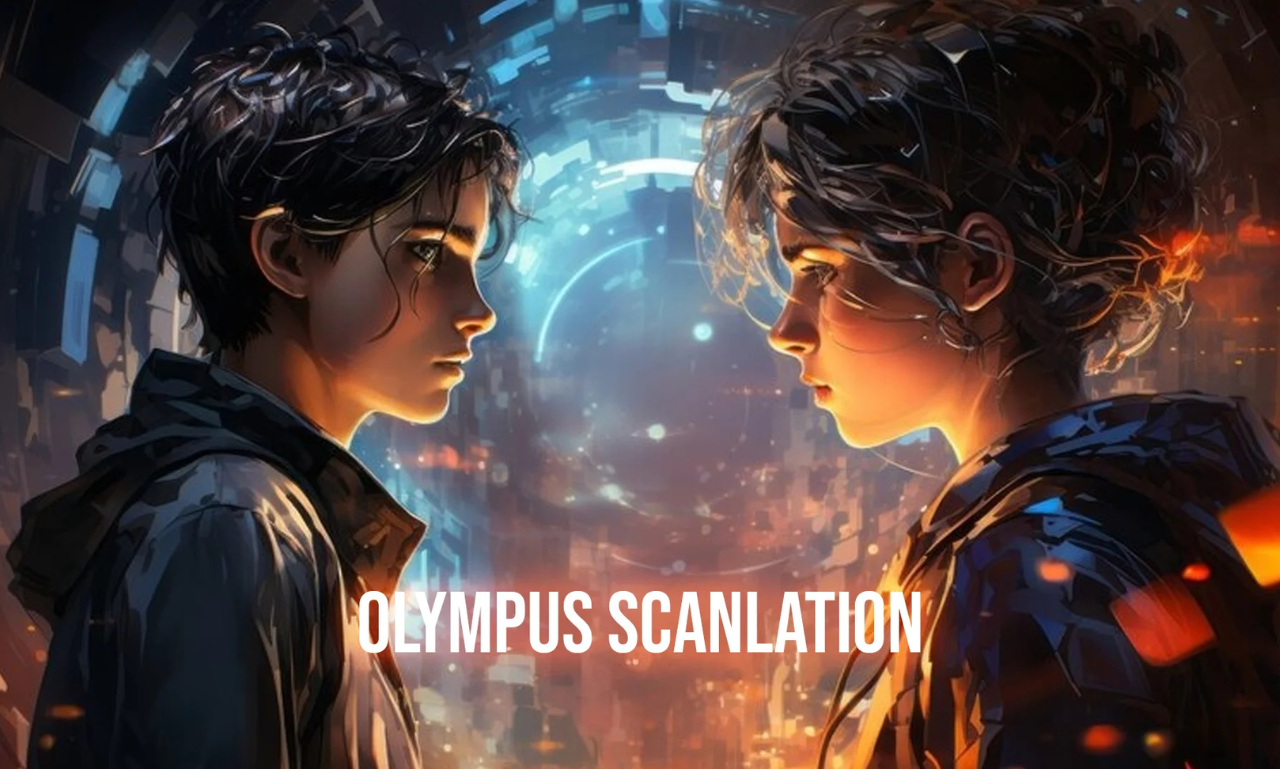Table of Contents
When it comes to manga, the anticipation of waiting for the next chapter can feel agonizing. For fans who just can’t wait for official releases, Olympus Scanlation provides a quicker, more accessible alternative. This fan-driven initiative delivers translated manga to readers worldwide, offering them a chance to dive into their favorite stories as soon as they’re available.
But what exactly is Olympus Scanlation, and why has it become so popular? In this article, we’ll explore the process behind scanlation, its benefits, the controversies surrounding it, and its overall impact on the manga community.
What Is Olympus Scanlation?
At its core, Olympus Scanlation is the process of fan-translating manga from Japanese into other languages, often well before official translations are available. This practice involves a team of passionate individuals who work behind the scenes to provide free access to manga for international readers. The goal is to bridge the gap between Japanese releases and fans who may otherwise have to wait months, or even years, for an official version to be published in their language.
Unlike official translations, which can take time due to the approval process and marketing schedules, Olympus Scanlation often offers a faster turnaround, allowing fans to read new manga chapters within days of their release in Japan.
How Does Olympus Scanlation Work?
The process of Olympus Scanlation involves several key steps, each requiring dedicated effort and precision. Here’s a breakdown of how it typically works:
- Raw Manga Acquisition
The process starts with acquiring raw manga scans, usually right after the chapters are released in Japan. This might be done through digital purchases or by scanning physical copies. - Translation
Once the raw scans are available, the translation begins. A translator, fluent in both Japanese and the target language, carefully converts the text from one language to another. The goal here is to preserve not only the words but also the nuances and cultural references that make manga unique. - Cleaning and Editing
After the translation is completed, the editing team steps in. They clean up the scanned images, removing any imperfections while making sure that the artwork remains intact. The translated text is then added to the speech bubbles and narrative panels in a way that looks natural and professional. - Quality Check
Before the scanlated manga is published, a quality check is done to ensure that the translation is accurate, the artwork is preserved, and there are no errors in the formatting. This step ensures that readers receive a polished and enjoyable experience. - Release
Once everything is finalized, the scanlated chapter is uploaded to various platforms, where it becomes accessible to fans around the world.
The Appeal of Olympus Scanlation
For many manga fans, Olympus Scanlation provides an immediate fix to the problem of waiting for official translations. Here are some reasons why it has garnered such a large following:
- Quick Access: Instead of waiting months for an official release, readers can access the latest manga chapters within days.
- Niche Content: Olympus Scanlation often covers manga that may not be on the radar of major publishers, meaning fans can discover hidden gems they might not otherwise have access to.
- Community Engagement: Scanlation fosters a strong sense of community among fans, who are able to discuss the latest chapters and plot developments as soon as they’re available.
The Controversy Surrounding Scanlation
While Olympus Scanlation has gained a loyal following, it’s not without its share of controversy. One of the main issues revolves around the legality of scanlation. Since these fan translations are often done without the permission of the original creators or publishers, many in the manga industry view it as a form of piracy.
Here are some key points in the debate:
- Impact on Sales: Publishers argue that scanlation hurts the sales of official releases, as fans may choose to read the free, unofficial version instead of purchasing a legitimate copy. This, in turn, could hurt the manga industry, which relies on sales to continue producing new content.
- Creator Compensation: Scanlation bypasses the revenue stream for the creators, meaning they do not receive financial compensation for their work when fans opt for scanlated versions.
- Quality Control: Professional translations undergo rigorous quality checks to ensure accuracy. Fan translations, while passionate, may sometimes contain errors or misinterpretations that could affect a reader’s understanding of the story.
Why Fans Love Olympus Scanlation

Despite the controversy, it’s clear that Olympus Scanlation fills a need in the manga community. Fans are drawn to the speed, variety, and accessibility that scanlations offer. Here are a few reasons why fans continue to support Olympus Scanlation:
- Instant Gratification
Manga fans are notoriously eager for new content, and Olympus Scanlation delivers fast. Whether it’s the latest chapter of a long-running series or the discovery of a brand-new title, fans don’t have to wait for official release dates. - Access to Niche Titles
Some manga never receive official translations, especially if they fall into niche genres or have a smaller following. Olympus Scanlation introduces readers to these hidden gems, allowing fans to explore a wider variety of stories. - Language Barriers
For international readers, the language barrier can be a major obstacle. Olympus Scanlation helps fans who don’t speak Japanese enjoy manga in their native language, expanding the reach of these stories.
Olympus Scanlation’s Impact on the Manga Industry
The rise of scanlation has certainly made waves in the manga industry. On the one hand, it has introduced many fans to manga they may never have discovered otherwise. Some argue that scanlation helps build a dedicated fan base that later supports the official releases through purchases of books, merchandise, and subscriptions.
On the other hand, there is concern over how scanlation affects sales. With so many readers consuming free, fan-translated content, publishers worry that the demand for official releases will decline. In response, some companies have begun releasing simultaneous translations to compete with scanlators and capture the fan base that craves instant content.
The Future of Olympus Scanlation
As the demand for immediate access to manga continues to grow, it seems unlikely that Olympus Scanlation will disappear anytime soon. However, the future of scanlation may depend on how publishers and fans navigate this evolving landscape. Some publishers have started to embrace fan translators, offering them positions within official teams to harness their skills while maintaining control over the content.
At the same time, the rise of digital platforms for manga distribution has made it easier for fans to access official translations at a faster pace. Simultaneous releases, subscription services, and digital downloads are all ways the industry is trying to compete with scanlation by offering fans legitimate, high-quality content more quickly than ever before.
Conclusion
Olympus Scanlation has become a fixture in the manga community, offering fans fast and accessible translations of their favorite stories. While it provides undeniable benefits for readers, it also raises important ethical and legal questions about the rights of creators and the impact on the manga industry as a whole.
As both the scanlation community and the manga industry continue to evolve, one thing is clear: fans will always be eager to engage with the stories they love. Whether through official channels or fan-made translations, the passion for manga will remain strong.
For now, Olympus Scanlation continues to bridge the gap between Japan’s vibrant manga culture and the international fans who just can’t wait for the next chapter.
Here are 10 frequently asked questions (FAQs) related to the article about Olympus Scanlation:
1. What is Olympus Scanlation?
Olympus Scanlation is the fan-driven process of translating Japanese manga into other languages before official translations are released. It allows readers to access manga content more quickly.
2. How does Olympus Scanlation work?
Olympus Scanlation involves acquiring raw scans of manga, translating the text, editing the artwork to incorporate translations, and sharing the final product online for fans to read.
3. Is Olympus Scanlation legal?
No, scanlation is often considered illegal because it involves distributing manga without permission from the original creators or publishers, bypassing the proper licensing process.
4. Why do fans support Olympus Scanlation?
Fans appreciate Olympus Scanlation for providing quick access to new manga chapters and offering translations of niche or less popular titles that may not get official releases.
5. How does scanlation impact the manga industry?
Scanlation can have a negative impact on the manga industry by reducing sales of official releases. Some argue that it takes away from the financial support that creators and publishers rely on.
6. Are scanlations lower quality than official translations?
While many fan scanlations are of high quality, some may contain errors or misinterpretations due to the lack of professional oversight, which can affect the reading experience.
7. How do scanlators choose which manga to translate?
Scanlators often select manga that has yet to be officially translated or is highly anticipated by the fan community. They may also focus on niche genres or lesser-known titles.
8. Where can I read Olympus Scanlation manga?
Fans can find scanlated manga on popular platforms like MangaDex, Bato.to, and other community-driven websites that host user-uploaded content.
9. Is there a way to support the original creators if I read scanlations?
Yes, fans who enjoy scanlations are encouraged to buy official releases, merchandise, or subscribe to official platforms when they become available, to support the creators and publishers.
10. Will scanlation continue to be relevant in the future?
As long as there is demand for immediate access to manga, scanlation is likely to continue. However, the growing number of official simultaneous translations may reduce the need for fan-driven scanlations in the long term.




